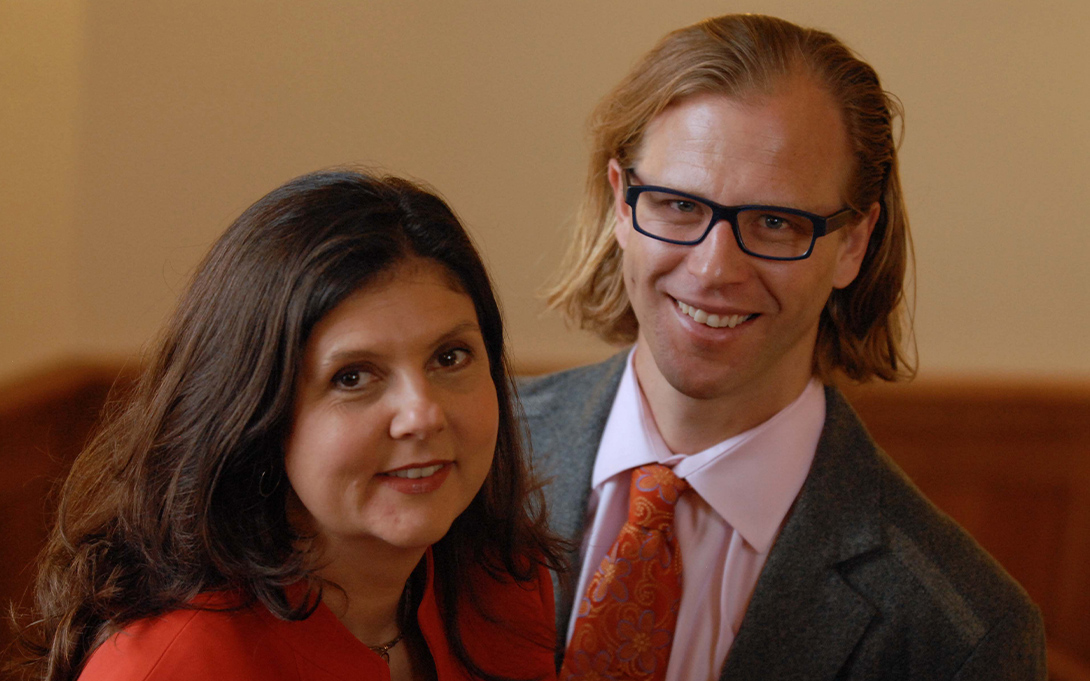
The news released on April 30 that the U.S. economy had shrunk 4.8 percent in the first quarter of 2020 confirmed that the country is poised to experience a deep recession. The analyses of Ford School economists Betsey Stevenson and Justin Wolfers have indicated the slowdown is an understandable reaction to the coronavirus pandemic. What is unknown is how long the recession could last and what actions might bring the economy back. An important component of that recovery is the healthcare sector, which has taken a surprising hit.
“The economy is just us,” Stevenson told The New York Times on April 26. “How much would we each be willing to give up to stay safe? If we open tomorrow, few are going to be willing to take the risk of engaging fully in the economy. Who wants to be the guinea pig who tests how dangerous going to a crowded restaurant still is?”
And if economic activity resumes too quickly, and outbreaks re-emerge, people could be even more fearful, and that can have long-term repercussions. “Once people start hearing of people getting sick and dying after eating at a restaurant, who’s going to want to go out to dinner again?” Stevenson said.
Wolfers told CNN Tonight on April 26 that with so many people out of work or unable to work, the length of the recession is hard to predict. “What if at the end of this period when we've finally beaten the bug, consumers don't have any money. Consumers are reluctant to return to the market...And if that happens, then the recession could go on and on and on and on. So really, it's the duration of this recession that's up for grabs,” he said.
“We have no indications right now just how vibrant or how weak the recovery is going to be, because we're actually still in the freefall phase,” he said.
Wolfers, in a tweet on April 29 that was widely referenced by media outlets, the most astonishing element of the Q1 drop in GDP was that nearly half—2.25 percent—was attributed to the healthcare sector, which represents 18 percent of the US economy, presumably because of the delaying of elective procedures. Nearly 100,000 health care workers have lost their jobs.
“It's a strange reality that in the midst of a pandemic, we have a healthcare-led recession,” he tweeted.
Stevenson emphasized that point as well on NPR’s Marketplace: “It’s not just stores and restaurants and the like. Spending on health care is down too. To make room for COVID patients, hospitals really had to shut down a lot of nonessential treatment.”
That sentiment is echoed in an article on Mlive April 30, including input from Marianne Udow-Phillips, founding executive director of the Center for Health & Research Transformation at the University of Michigan and an adjunct faculty member at the Ford School. Michigan hospitals reported steep losses in March and April, in some cases revenue dropped between 50 percent and 70 percent, because of state restrictions to postpone non-urgent care designed to conserve personal protective equipment and prepare for a surge of COVID-19 patients.
As Whitmer lifts restrictions on hospitals, Udow-Phillips said patients will likely remain hesitant to seek care and risk exposure to the virus. More people could delay treatment for their health conditions due to those concerns, she said.
Udow-Phillips said community health clinics and dentists’ offices are bracing for tough times ahead.
“This cannot go on for many more months before we start to see health system, hospital and clinic practice failures across the country," she said.
Betsey Stevenson is a professor of public policy and economics at the University of Michigan. She is also a faculty research associate at the National Bureau of Economic Research, a visiting associate professor of economics at the University of Sydney, a research fellow of the Centre for Economic Policy Research, a fellow of the Ifo Institute for Economic Research in Munich, and serves on the executive committee of the American Economic Association. She served as a member of the Council of Economic Advisers from 2013 to 2015 where she advised President Obama on social policy, labor market, and trade issues. She served as the chief economist of the U.S. Department of Labor from 2010 to 2011, advising the Secretary of Labor on labor policy and participating as the secretary's deputy to the White House economic team.
Justin Wolfers is a professor of public policy and economics. He also serves as a member of the Congressional Budget Office Panel of Economic Advisers. Wolfers' research interests include labor economics, macroeconomics, political economy, social policy, law and economics, and behavioral economics. Previously, Wolfers was an associate professor of business and public policy at the University of Pennsylvania and a visiting professor at Princeton University. He is a research associate with the National Bureau for Economic Research, a senior fellow of the Brookings Institution, a senior fellow of the Peterson Institute for International Economics, a research affiliate with the Centre for Economic Policy Research in London, and an international research fellow at the Kiel Institute for the World Economy in Germany.
Since 2007, Marianne Udow-Phillips has served as founding executive director of the Center for Health and Research Transformation (CHRT) at the University of Michigan. CHRT works to advance health care delivery, the health of the population, and access to care by transforming research and evidence into actionable policy approaches. Prior to her leadership role at CHRT, Marianne served as director of the State of Michigan’s Department of Human Services (2004-2007) and senior vice president of health care products and provider services at Blue Cross Blue Shield of Michigan (1999-2004). Over the years, she has held many leadership roles at Blue Cross Blue Shield of Michigan (1988-2004, 1978-1985), and Mercy Alternative (1986-1988).